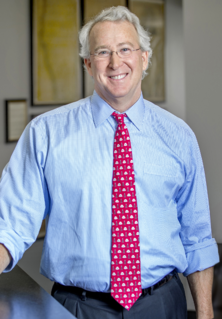A Quote by James C. Collins
Not every financial company toppled during the 2008 crisis, and some seized the opportunity to take advantage of weaker competitors in the midst of the tumult.
Quote Topics
Related Quotes
American business would be run better today if there was more alignment between CEOs' interest and the company. For example, would the financial crisis of 2008 have occurred if the CEO of Lehman and Morgan Stanley and Goldman and Citibank had to take a very small percentage of every mortgage-backed security... or every loan they made?
It is no exaggeration to say that since the 1980s, much of the global financial sector has become criminalised, creating an industry culture that tolerates or even encourages systematic fraud. The behaviour that caused the mortgage bubble and financial crisis of 2008 was a natural outcome and continuation of this pattern, rather than some kind of economic accident.
I believe that the financial crisis of 2008/9 exposed more a lack of ethics and morality - especially by the financial sector - rather than a problem of regulation or criminality. There were, of course, regulatory lessons to be learned, but at heart, there was a collective loss of our moral compass.



































